Justice for Palestine: False narratives cannot win wars!
- Israel’s illegal aggressions in the ME will push the region to acquire nuclear arms!
The following is the text of the speech delivered by senior lawyer MM Zuhair at the launch of three books on Palestine on Tuesday at the Lakshman Kadirgamar Institute in Colombo. Mr. Zuhair reviewed former minister Imthiaz Bakeer Markar’s book Palestine (Tamil). Excerpts:
It is with deep appreciation that I thank the Sri Lanka Journalists for Global Justice for organising this timely and important event. I am also honoured to have been invited to share some thoughts on a subject that resonates deeply not only with global human rights but also with our national interest.
Today, we are witnessing the launch of three significant publications—works that will contribute meaningfully to the ongoing global effort to counter the widespread false narratives surrounding the plight of the Palestinian people. These books are a step forward in correcting decades of distortion and disinformation.
The global community has watched, often in horror, as the people of Gaza and Palestine endure relentless assaults. More recently, we have also seen military aggressions directed at Iran, first by Israel and then supported by the United States. These acts have not only triggered military escalation but have also been met with widespread international condemnation.
What remains especially troubling is the persistence of false narratives—stories that continue to mislead hearts and minds around the world, even as innocent civilians suffer. Every day, television screens show us live images of horror. Entire families buried under rubble. Children orphaned. Lives destroyed. And yet, the world debates semantics.
On average, over 85 innocent civilians are being killed each day in Gaza—many more remain uncounted beneath the rubble in collapsed buildings. These victims are civilians. They are not armed. They are not terrorists. They are not a threat. They are hungry Palestinians—standing in queues to collect food, often from aid that fails to meet even the minimum humanitarian standards recognised by the United Nations. Even these human beings, desperate for food and survival, are targeted!
We must understand: this is not a war somewhere far away. It affects us directly, here in Sri Lanka. During previous escalations, our food prices surged. When questioned, authorities cited the ripple effects of global conflict. But what is the nature of this conflict? It is a war waged by Israel—not just on Gaza, but also on Iran—and endorsed by Western powers. The resulting inflation affects every Sri Lankan household, including school-going children.
If only for our own self-interest, we must speak out. The war is illegal, unjust, and deeply brutal. This is mayhem, murder, and massacre! This must stop—not tomorrow, not after another round of diplomacy, but now. Our government has a duty to act, not just analyse. We must stop rationalising and begin recognising that killing innocent civilians is never acceptable—least of all in Gaza, where people have suffered decades of systemic violence.
The narrative of provocation by Hamas is a distraction. It is important to clarify: Hamas is labelled a terrorist organisation by only a few countries—not by the United Nations, not by the majority of the international community. When your homeland is occupied, when your people are displaced, and when the global system forces you to accommodate an aggressor, armed resistance can never be labelled as terrorism. Palestinians electorally represented by Hamas have the right to defend their country from illegal foreign occupation! That is not terrorism!
Let us not forget, this crisis has deep historical roots. The Middle East conflict did not begin in October 2023 nor in 2000. It is the result of a century of inhuman displacements, misrepresentations, and betrayal.
Sri Lanka, too, has a unique stake in this matter. Over 1.5 million of our fellow citizens, who could not find jobs here, are employed in the Middle East. They send home from the ME close upon 7 billion dollars annually—an amount that is three times what Sri Lanka earns from tourism and three times what we earn from garment exports! In fact, remittances from ME-employed domestic workers, drivers, and labourers form the backbone of our foreign exchange.
Many of these Sri Lankan workers are employed in Israel and may unknowingly be working in occupied territories. According to the recent findings of the International Court of Justice (ICJ), any assistance to the occupying power Israel or its citizens in the Occupied Territories of Palestine—whether direct or indirect—is illegal under international law. It is imperative that we do not find ourselves complicit in the perpetuation of injustice.
At a prior meeting, the current Prime Minister of Sri Lanka remarked that in the context of these aggressions, our "silence is complicity." It was a powerful statement. But statements are not enough. We must ask: what action has been taken to plead against aggressions? What steps have been implemented to ensure that Sri Lanka is not on the wrong side of history?
We are patient. We will wait. But the people deserve an answer.
I want to turn to the work of former Minister Imtiaz Bakir Markar, whose book I was asked to comment on. His writings are not merely academic—they are emotional, human, and courageous. They reflect the reality that many of us feel but are unable to express. As another reviewer noted, these words often bring tears. And if they don’t, we must question our own humanity.
One of Imthiaz's speeches, titled "Stop Relations with Israel Until It Bows to Global Public Opinion," is particularly compelling. The message is clear. Imthiaz has urged that Sri Lanka must suspend diplomatic relations until there is compliance with international public opinion. Will our government take that bold step? Perhaps not. But that doesn’t mean we stop advocating.
Another critical issue raised in his work is the United States’ use of veto power at the UN Security Council. Justice has been unjustly denied by the US abusing its veto power, contrary to the global opinion, whenever Israel was called to account in the UN Security Council! We are not calling for isolation or hostility, but for accountability. Time and again, global consensus has been thwarted by a single veto. This has effectively paralysed meaningful action and denied justice to millions.
Let us revisit history. In 1917, the British, then a colonial power, wrote to the President of the World Zionist Federation, promising a "home" in Palestine to the Jews of the world, without the consent of the Palestinians, who had been living there for centuries, its actual inhabitants. The result was a foreign power gifting the Zionists someone else's land! Over the next hundred years this British betrayal of the Palestinians and the several and unceasing wars thereafter have made the entire world suffer the consequences of this betrayal.
Between 1917 and 1948, militant Zionist groups committed acts of violence that foreshadow today’s horrors. Yet in 1948, Israel was recognised by the UN as a full-fledged state, while the Palestinians—who had lived there for centuries—remained stateless. In 2012, the UN had granted only an “Observer” status in the UN.
This is not merely a political issue—it is a spiritual and moral one. Biblical justifications have been misused to claim superiority and exclusivity over land. Genesis 17:8 is often cited but misinterpreted. God would not grant land to anyone in order to murder or oppress the natives of the land! They forget that Prophet Ibrahim had two sons—from whom the Jews and Arabs descended.
In 1923, official records showed 80% of the population in that region were Arabs, 9% Jews, and 11% Christians. Over time, these demographics have been violently reversed.
Israel’s recent attacks on Iran, followed by the US attacks on Iran, were aimed at regime change and ending Iran’s nuclear capabilities. But they failed in both. Iran’s regime today is stronger than before the attack! Iran’s nuclear facilities are for civilian use. There were no nuclear arms to be eliminated, though the attacks were at great cost to the attackers!
I lived in Iran for six years. I have studied their people and leadership closely. They are calm, wise, and restrained—even in the face of provocation. Their response to recent attacks was measured and strategic, aimed at avoiding wider conflict.
We must remember: we are not advocating for war. We do not want war in Iran, Israel, Gaza, or anywhere else. We seek peace—but peace with justice. As was said by a respected commentator, "The camp for peace is weak. The camp for war is strong." That is our challenge.
I call upon the Sri Lanka Journalists for Global Justice and all members of civil society to persist in this struggle—not with weapons, but with truth. The false narratives of the aggressors cannot survive, but Palestine will survive!
In Mr. Latheef Farook’s book No Tears for Palestine, we see this pain eloquently expressed. The victims have been crying for far too long. The tears may have dried up because the people have no food, no water, no sleep, and no homes to go back to. And yet, the resistance continues. The fight for justice will succeed. False narratives cannot win wars!
This is not about religion. No true believer of any faith can accept that God would promise a land in exchange for bloodshed. Such an idea offends every moral and spiritual principle.
The West has failed the Palestinians! The UN and its Security Council have been rendered powerless by the US veto. But that won't be the end. Because Israel has now pushed Iran to acquire nuclear weapons! Israel’s illegal aggressions in the ME will push the ME to acquire nuclear weapons! Nuclear arms can be the final option of deterrence, though no one supports that option!
I close by honouring Hon. Imthiaz Bakeer Marker and all others who have spoken and written on behalf of Palestine. Your work—both seen and unseen—has brought relief to our collective conscience. May you continue to be a driving force for justice.
-
Still No Comments Posted.



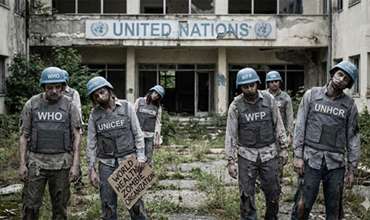





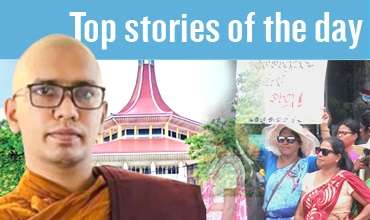
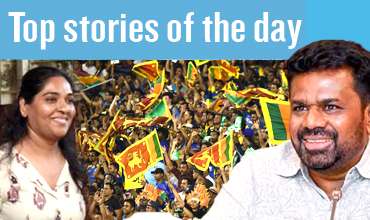
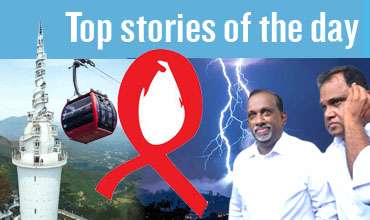


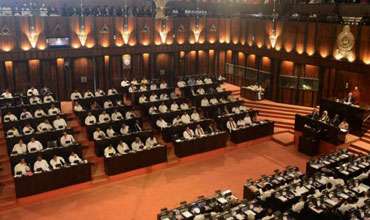

Leave Comments